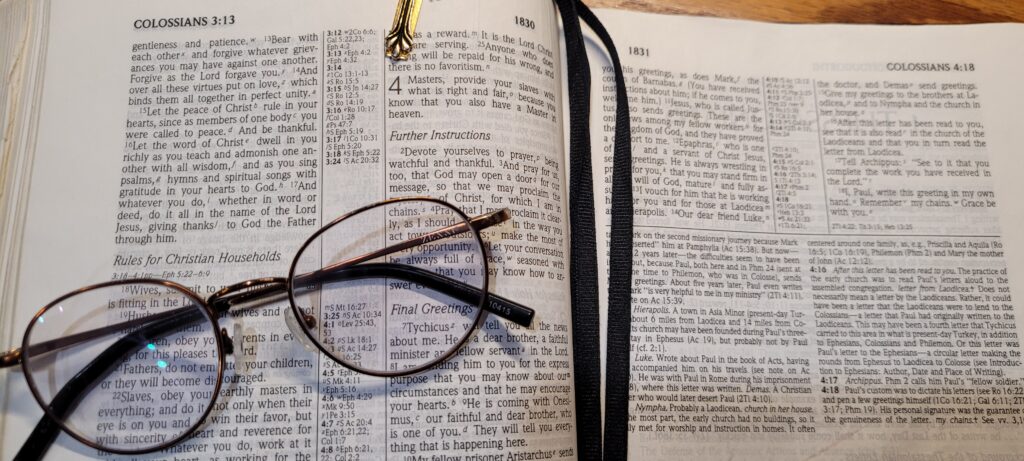Acts 18:1–4 After this, Paul left Athens and went to Corinth. There he met a Jew named Aquila, a native of Pontus, who had recently come from Italy with his wife Priscilla, because Claudius had ordered all the Jews to leave Rome. Paul went to see them, and because he was a tentmaker as they were, he stayed and worked with them. Every Sabbath he reasoned in the synagogue, trying to persuade Jews and Greeks.
Just over a year ago Cheryl and I were in Corinth on a “Footsteps of Paul” tour. The unearthed ruins of ancient Corinth were surrounded by modern day homes. We were able to spend some time wandering through the ruins and wonder what life must have been like 2000 years ago in that city. Several places were suggested as possible locations for Paul to have set up his shop as a tentmaker because of the tools found in the area. While we know he was there, we cannot know the exact spot he worked.
When the apostle Paul visited Corinth, that city was about as secular a place as you could find. It was a port town with a lot of sailors and a lot of prostitutes. There were many temples to many different gods. It was a corrupt town in which a good number of the people felt no need for any god of any kind. It was to such a city and such a people that Paul came with the message of salvation through Jesus Christ and only through Him. Jesus was proclaimed as the solution for the Corinthians in their search for meaning, peace of mind, forgiveness and the assurance of eternal life. Paul did not mince words. He was specific when sharing the message. He did not speak in vague or uncertain terms. He did not preach an ambiguous message of Jesus. He proclaimed the power of Christ, the Son of God, the only Savior of the world. He spoke of Jesus living a perfect life, being crucified for the sins of the world, and rising again to proclaim victory over death. The Holy Spirit worked through his message. People came to faith. They became convinced that Jesus was the answer to the problem of their sin and its consequences – death, separation from God, eternal condemnation. That is still true today for people all over this planet.
That is what we need to be busy sharing Jesus. Paul did it on a personal level. So must we. I know that the Spirit of God can and will work through a variety of means. I’m sure that people have been led to faith in Christ because of the Internet, e-mail, television, and radio. Those are all tools that can be used. They are good things. But the most powerful and effective means of making disciples since the church began is to let the Holy Spirit use you as an individual. The best method is what Jesus said: Go, tell, teach. Be a Christian, a disciple, who lives his or her faith wherever you find yourself. The first place that needs to happen is in your home as a father, mother, husband, wife, son or daughter. Being a forgiven child of God will influence the kind of father, mother, husband, wife, son or daughter that you are. You will try to be an imitator of Christ so that the members of your family will see Him through you. That should be true first and foremost in your home. If you share Christ in word and action in your home, then it will be true wherever else you go.
- Teaching in a public school
- Waiting on tables
- In the board room and the break room
- At your receptionist desk
- At the coffee shop
- On a sales call
- Where you volunteer

